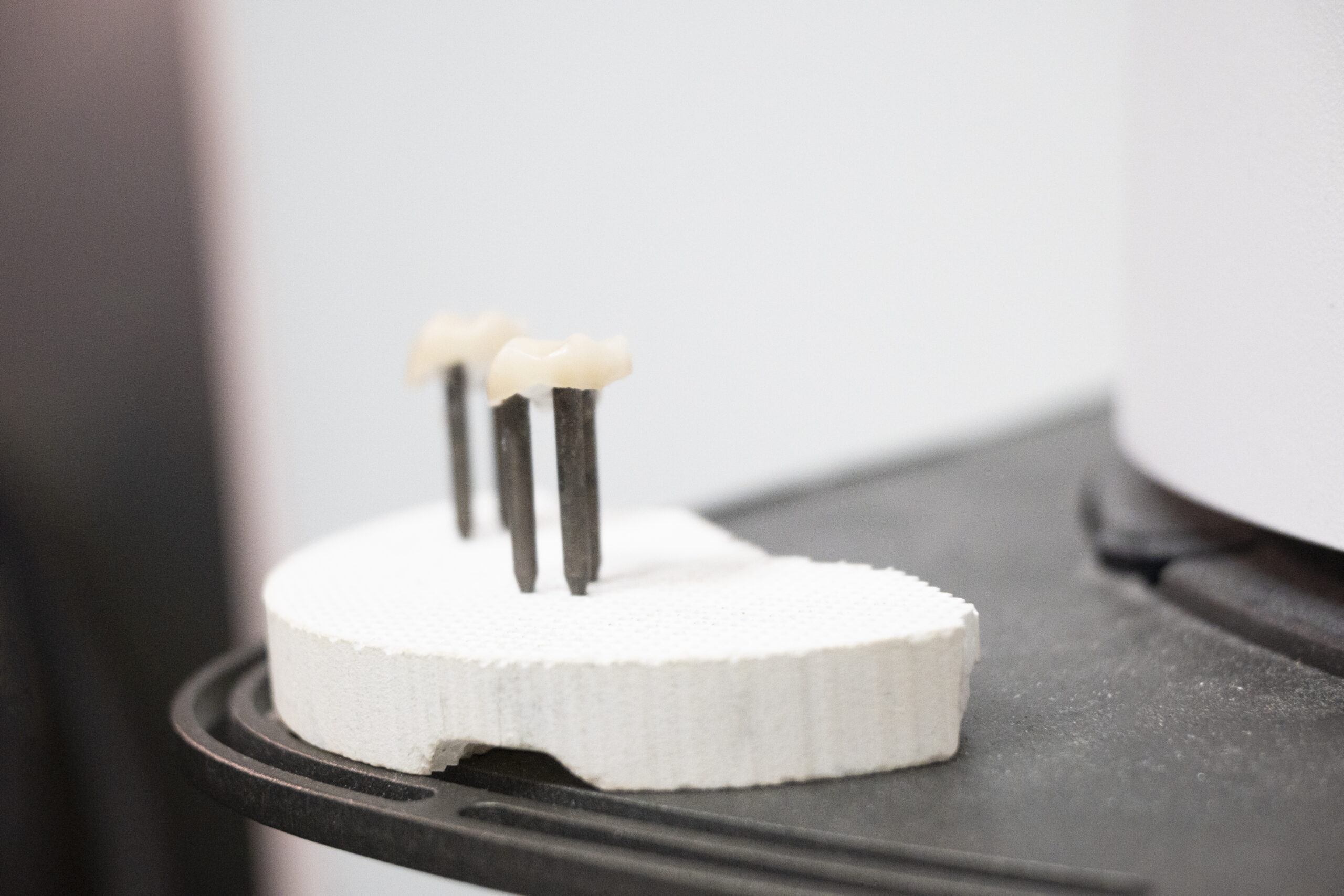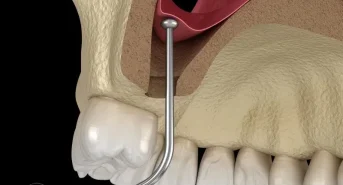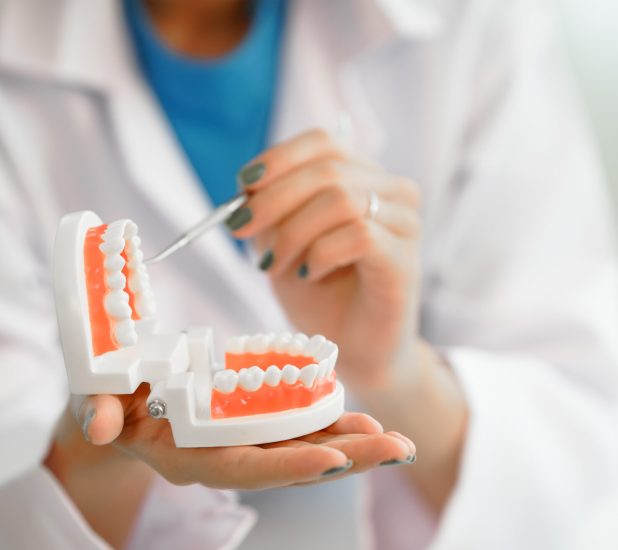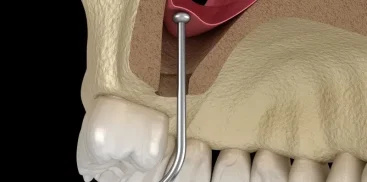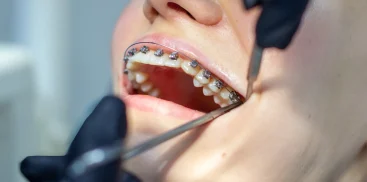Dental Crowns and bridges are permanent prosthetic solutions that are attached to existing teeth or implants. Unlike dentures, which can be removed and cleaned daily, crowns can only be removed by a dentist.
What are Dental Crowns?
A dental crown provides an ideal solution for damaged teeth, offering them comprehensive coverage. Its main function is to strengthen and protect the tooth. Additionally, it improves aesthetics and aligns its appearance. Crowns can also be used on implants and can be made from various materials such as porcelain, ceramic, gold, acrylic, or iron alloy. Ceramic and porcelain crowns can be matched to the natural shade of the remaining teeth, providing a harmonious aesthetic effect.
Dental Crowns and Their Types
Dental crowns are classified based on the material from which they are made. Here are their types:
- Porcelain Crowns – can be made on a metal or ceramic substructure. Metal core crowns are particularly recommended for molars.
- Gold Substructure Porcelain Crowns – recommended for patients with severely damaged teeth due to the strong anti-cavity action of gold.
- All-Ceramic Crowns – characterized by exceptional aesthetics. Due to their appearance, they are difficult to distinguish from natural teeth. Such crowns are commonly used for anterior teeth replacements.
- All-Metal Crowns – are currently used much less frequently.
- Composite and Acrylic Crowns – serve as temporary solutions. However, if porcelain crowns cannot be applied to a patient (e.g., due to material hardness), it is possible to have permanent crowns made of composite or acrylic.
Dental Crowns – When Are They Needed?
Dental crowns are used as prosthetic replacements, especially for teeth that have undergone endodontic (root canal) treatment. Additionally, they are used in cases of congenital enamel deficiency and for rebuilding damaged or decayed teeth. There are several situations in which dental crowns are recommended:
- Protecting a weak tooth from fracturing
- Securing a dental bridge
- Covering a dental implant
- Correcting a misshapen tooth
Therefore, dental crowns serve not only to restore aesthetics and bite function but also to protect and stabilize teeth and other prosthetic solutions.
Contraindications for Dental Crowns
During a visit to the dental office, the dentist assesses whether the condition of the remaining tooth allows for the placement of a crown. Dental crowns are not recommended in cases where:
- The remaining tooth structure above the gum line is less than 2-3 mm
- Teeth are severely decayed, reaching the gum line or even deeper
In the above situations, the dentist often orders the lengthening of the clinical crown of the tooth, followed by the creation of a temporary crown. After six months, the dentist prepares a porcelain crown for placement.
Are Dental Crowns Durable?
The durability of dental crowns largely depends on the precision and skill of the dentist. It is essential to perform the procedure accurately and use appropriate dental techniques. With a well-made crown, one can expect it to last for 10-15 years.
